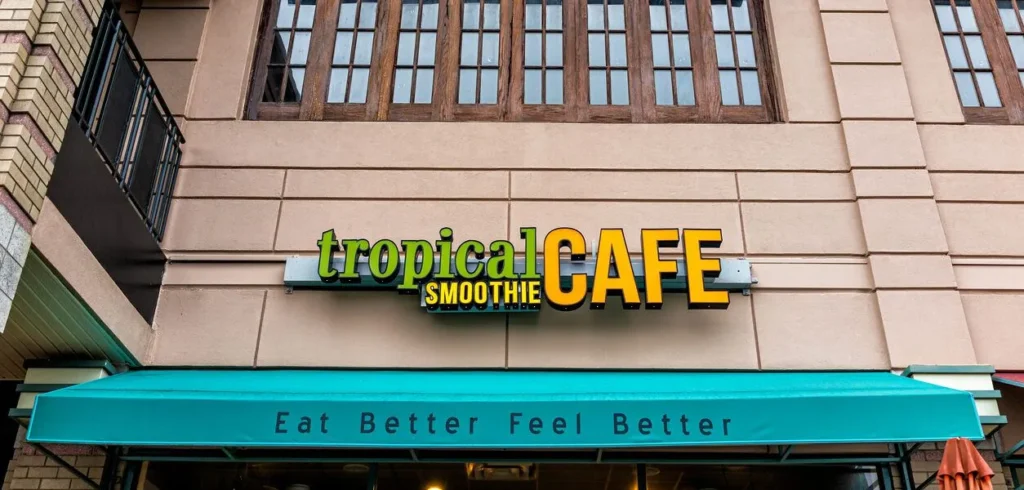Home » The Story of One Restaurant Owner Winning During COVID | Global Shared Services

In other posts, I have mentioned different franchises that are succeeding in today’s environment and how they are doing so.
Instead of just talking about these owners broadly, I thought I would share with you a story of one of the franchisees I am talking about.
Meet Nick.
Nick first heard of Tropical Smoothie Cafe in 2008 and was instantly a big fan of the product. Recognizing the need for something like it in his home state of Wisconsin, he soon went to work building a roadmap towards becoming a franchisee.
In 2017, Nick signed and purchased a franchise agreement with Tropical Smoothie Cafe.
While it was a bumpy start with difficulty finding real estate, construction, etc., he soon had their grand opening in May of 2019.
It was a success.
Just over a year later, in June of 2020, Nick sold the cafe to another franchisee of Tropical Smoothie Cafe who has intentions on growing the territory.
This wasn’t a desperate sell-or-shut-down sale. Nick’s goal as an owner was to have $750k in sales with a 15% margin. He ended up making $1.1 million in sales and exceeding the 15% margin.
(you can read the full story here)
The overnight success that exceeded all financial goals in the midst of a pandemic doesn’t do the story justice.
Nick had a tough year.
He spent more time away from his family than ever, lost sleep over the stressors of the venture, and worked 18 hour days… every day.
It wasn’t easy, and it took a huge time commitment that was the primary driver behind selling the business.
Honestly, some of Nick’s success was due to luck. But I wouldn’t call a guy starting a franchise 8 months before a worldwide pandemic “lucky”.
Nick won because he had the passion, drive, and a dedicated team to turn his dream into reality.
You can do the same. Even in today’s environment.
Want to hear something neat? Nick just joined the team here at GSS to help franchisees do exactly what he spent his time doing this last year.
He is a born-and-raised Brewer and Packer fan, a family man with a beautiful wife and two young children, a jiu-jitsu practitioner, and most relevant to you, he walked in your shoes as a franchisee finishing top 10% in system-wide sales during his tenure.
Nick attributes a lot of his success to the partners he established throughout his journey, and he now wants to be that partner – giving franchisees the financial clarity and foresight to achieve their dreams.
Connect with him on LinkedIn and read the full article he wrote on his experience.
Nick would love to chat more about how GSS can partner with you to build your business, whether that be to sell or just make more money.
Feel free to schedule a call, or just email him directly at [email protected].
